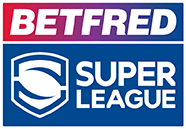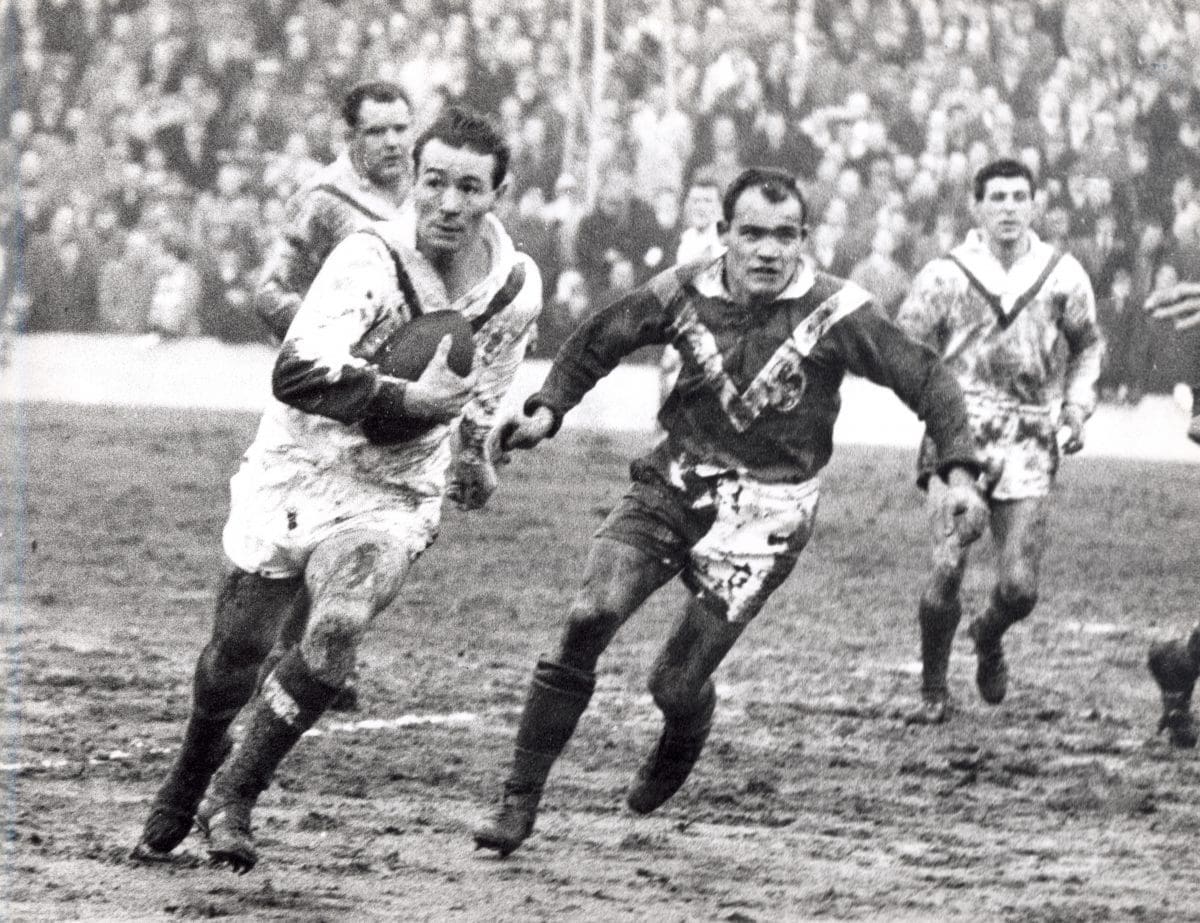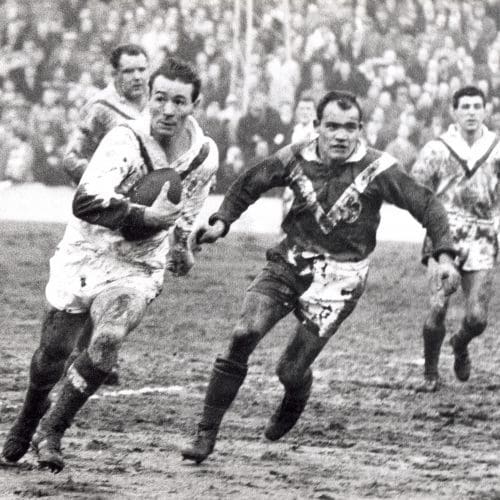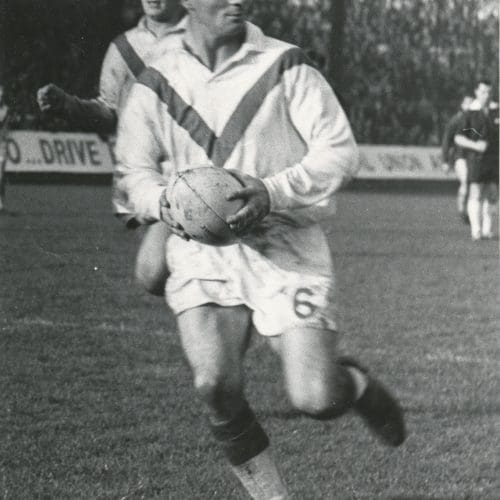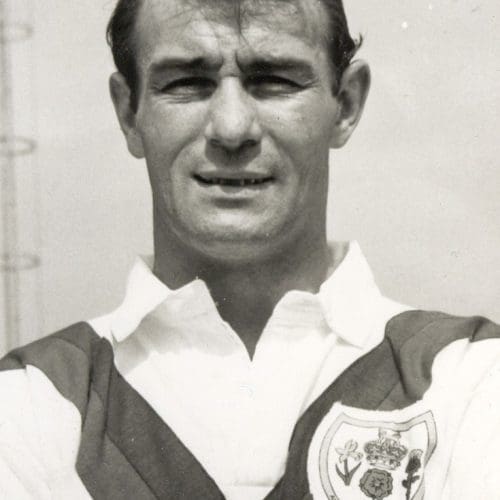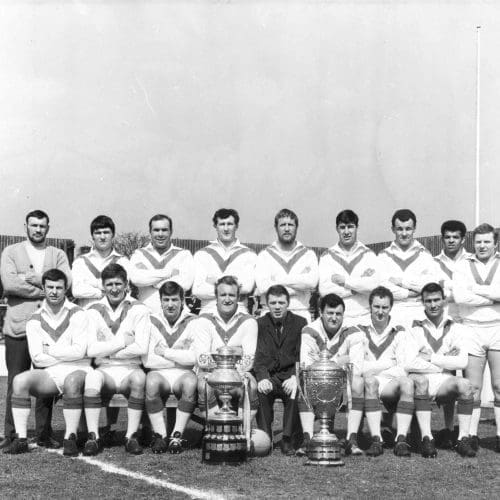It is extremely sad to report the passing of a true rugby league icon, Frank Myler, who has died at the age of 81. Saints Heritage Society’s Alex Service writes this tribute to him.
Heritage Number #843
Born 4th December 1938
Died 27th March 2020
Those of a certain age will recall Frank as an outstanding all-round player, tough and classy, who could play either at stand-off half or in the centres at club, county and international level. He more than made his mark at all levels of the game, but he remains the last Ashes winning captain for Great Britain, in 1970. It gives us all at St Helens RFC a great source of pride that he was wearing the red vee at that time. Yet his arrival at Knowsley Road was somewhat later in his career, as we shall see.
Born and bred in Widnes, a couple of years before the Second World War broke out, Frank first played rugby league at St Bede’s junior school and later at ‘Fisher More’ Secondary school, where he fast gained a reputation as a loose forward. By the time he was in his teens, he had attracted the notice of Warrington and Leigh, initially. Yet the tall, athletic youth was also seen as a possible prospect by the Saints.
There was already a great Widnes-born legend at St.Helens who was making his mark, called Vince Karalius. Vince was Frank’s cousin and partly as a result of this family connection, the youngster was invited to meet Saints’ coach Jim Sullivan and attend the Summer School at Knowsley Road. It is said that on one occasion when the Summer School was in full swing the participants, including Frank, watched a figure heading towards the Boardroom who was met by Jim Sullivan. It was Welsh rugby union star Cliff Morgan!
Although Frank continued to train at Saints, there was no offer, as such, in the pipeline. When Widnes came in for him, the 16 year old signed for £50, plus a further £25 after his first 12 games, much lower than previous offers from Warrington and Leigh. After all, Widnes was where his heart was and as he came through the ranks at Naughton Park, he was developed as a stand-off par excellence. After only a few ‘A’ team games, he was making his senior debut at the age of 17 against Liverpool City at Naughton Park on 27th December 1955 and scored two fine tries.
In 12 years at Widnes, he played over 350 matches, scored 146 tries and kicked 7 goals. In that time he became a brilliant exponent of half-back play: quick off the mark, with the footwork to beat any defender, with a side-step, change of pace or dummy. He was a superb tactician with a great rugby brain and the handling skills to put players through seemingly non-existent gaps. He was also a tough and reliable tackler. Frank wore the number 6 jersey when Widnes beat Hull KR at Wembley in 1964, with his cousin Vince as captain and scored a typically masterful try that afternoon too.
He played regular county rugby and made his Great Britain debut on 24th September 1960, against New Zealand at Odsal Stadium, Bradford, which was momentous in its own right: the first-ever World Cup game on British soil. The home side won 23-8 and try-scorer Myler was partnered in the halves by Alex Murphy, a constant selection in all three of the team’s successful World Cup winning campaign.
An Australian tourist in 1962 and 1966, Frank’s Widnes career was to end somewhat surprisingly for the player, at the end of the 1966-67 season, when Saints offered £6,000 for him, with forwards Ray French and Dave Markey also going to Naughton Park in a part-exchange deal. Widnes were not well endowed, financially, at the time and also needed forwards. Although clearly a wrench to leave his beloved Naughton Park, Frank agreed, and it proved to be another memorable chapter in what was already a stellar career.
He made his Saints’ debut against Salford at the Willows in a 15-3 victory on 1st September 1967. He was left centre, with Les Jones outside him. Club Captain Tom van Vollenhoven was on the other flank, partnered by Peter Douglas. Frank played many games in the centres for the Saints and shortly after, he was captaining his county for the first time, against Cumberland at Workington.
Frank played in 29 matches during his first season as a Saint and proved to be a wise investment, although many supporters rued the fact that he had not worn the red vee much earlier! Indeed, Frank made a total of 149 appearances and scored 46 tries during his four seasons at Knowsley Road and was so suited to Saints’ attractive brand of fast, open football, especially during the time of the four-tackle rule.
On 1st September 1969, Frank entered the record books with six tries against Maryport in a first round Lancashire Cup tie at Knowsley Road. Only the likes of Alf Ellaby, Tom van Vollenhoven, Steve Llewellyn and Shane Cooper have done that, and he made it look so easy.
Although he had enjoyed Lancashire League and Lancashire Cup final success with his Saints in 1968-69, his crowning glory was at the end of the 1969-70 season, when the Saints were determined to make amends for their Challenge Cup semi-final loss against Castleford by lifting the League Championship trophy. In a quite brilliant eighty minutes against Leeds at Odsal Stadium, Bradford, the Saints produced some quite stunning rugby, orchestrated by Frank Myler in the backs and Kel Coslett in the forwards, to beat the Yorkshiremen by 24-12. Frank was the outstanding player on the pitch and was awarded the Harry Sunderland trophy.
“Frank was a very good player and a good leader, who could read a game superbly,” remembers former team-mate Kel Coslett. “He was a natural footballer with an intense will to win, first and foremost.”
His impressive form meant that he was appointed captain of the 1970 Rugby League Lions to tour Australia and New Zealand. His co-captain was Saints’ front-rower Cliff Watson, who, ironically, was his club captain at Knowsley Road! Great Britain lost the first test in Brisbane 37-15, before roaring back with a stunning 28-7 victory in front of over 60,000 in Sydney, clinching the Ashes with a 21-17 victory in the third at the same venue on 4th July 1970.
Myler’s Men went on to make a clean sweep in the three tests against the Kiwis and went into the home-based 1970 World Cup competition with Frank still at the helm. Unfortunately, the matches were characterised by their physical brutality and Australia won the final 7-12 at Headingley. It was Frank’s last representative game for his country, which included a total of 24 appearances, 9 as captain and 5 tries.
In his last season at Knowsley Road, 1970-71, Frank suffered from niggling injuries, which prevented him from finishing the season. Yet one highlight was against Australia, the new World Champions, who came to Knowsley Road on 9th November 1970 and were thrashed 37-10 by the Saints! Frank was stand-off, with Alan Whittle as his scrum-half, who scored a magnificent hat-trick that night.
His last match in the red vee was on 13th March 1971 at Craven Park, in a 26-9 success, with Frank partnering Les Jones on the right flank. Unfortunately, he missed the Saints’ repeat Championship success against Wigan at the end of the campaign, but he still managed 31 appearances and 5 tries and certainly gave St.Helens excellent service throughout.
A move to Rochdale Hornets as player-coach followed at the start of the 1971-72 season and Frank was to be seen with his new team in the BBC 2 trophy final at Knowsley Road, when he was stand-off in their 2-8 loss on a real gluepot pitch. His partner at scrum-half was another former Saint, Peter Gartland.
Over the ensuing years, he combined business interests [painting and decorating and bookmaking] with coaching spells at Widnes, Swinton and Oldham. In 1984, he was the coach of the Rugby League Lions in Australia and New Zealand. Unfortunately, a repeat of the 1970 success was not forthcoming. A great pity. It was time for Frank to take a backward step, although he still proved to be a formidable opponent on the golf course!
“It was obviously such a blow to hear of Frank’s demise,” adds Kel Coslett. “Everyone thought he was such a lovely man. He was honest and eminently likable, with a great sense of humour. A good team man and, as I said, a true leader. Players of his ability are rare in any sport and his contribution to rugby league has been truly immense.”
Everyone at St. Helens R.F.C send their condolences to Frank’s family at this sad time.

